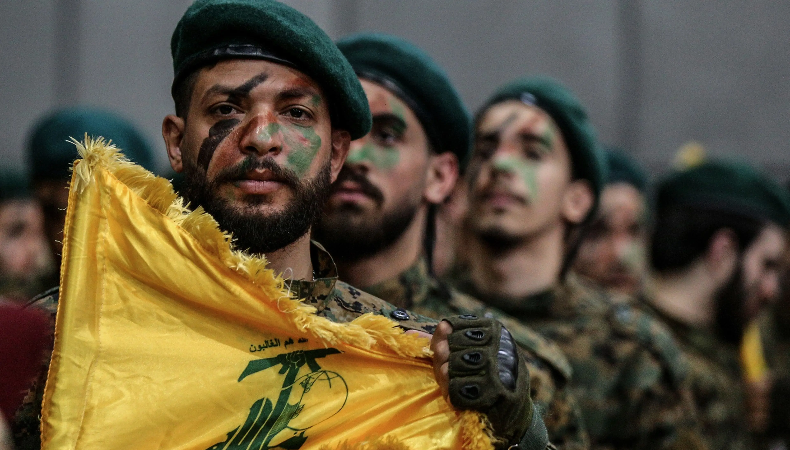Understanding Hezbollah’s Role in the Israeli Conflict: A Critical Analysis

The continuous conflict involving Israel has reached hitherto unheard-of degrees of volatility, underscoring the immediate requirement of looking at the main actors causing the disturbance. Understanding the present issue mostly depends on Hezbollah, an organization whose activities and goals are important in determining the dynamics of regional instability. Although proportional reactions and de-escalation techniques abound in international talks, the reality on the ground shows a more complicated and worrisome situation.
Goals and Regional Impact of Hezbollah
Clear and alarming are Hezbollah’s strategic objectives: an Islamic state for Lebanon and “liberation” of Jerusalem from Jewish rule. These goals have great consequences for the stability of the area and the success of worldwide peace initiatives, not only dreams. Hezbollah’s hostile posture undermines attempts to defuse tensions and control the more general conflict involving Israel. The group’s will to reach these goals shows a dedication to destabilizing the area and confronting local as well as international peace projects.
The Cooperative Danger: Hamas and Hezbollah
The Hamas attack on Israel from Gaza on October 7, a date known for its cruelty and scope, shocked the world. It is important to remember, meanwhile, that Hezbollah was also getting ready for a planned attack against Israel. This dual-front danger emphasizes the seriousness of the matter and the complicated interaction among the several insurgent organizations in the area. Fortunately, the Israel Defense Forces (IDF) had already implemented significant actions to compromise Hezbollah’s ability for a major invasion, therefore helping to restrict the fight to Israel’s northern areas. Notwithstanding these initiatives, Hezbollah’s ongoing military operations and growing threats nonetheless cause great worry.
Escalation and Civilian Influence
Hezbollah has been attacking Israel more aggressively since October 8, firing over 2,700 strikes with more than 10,000 anti-tank missiles and rockets together with about 1,000 unmanned aerial vehicles (UAVs). Twenty servicemen and 25 civilian lives have been sadly lost from the unrelenting onslaught. The continuous bloodshed has driven about 60,000 Israelis from their homes, highlighting the instantaneous and extreme influence of Hezbollah’s activities on daily life. This enormous displacement shows the terrible human cost of the conflict as well as the immediate need of preventive actions. The scope and force of these strikes highlight the need of tackling the underlying causes of the conflict and using sensible plans to safeguard the people.
The Need of Continuous Vigilance
Any possible truce agreement should take into account not only the immediate issues regarding Israeli prisoners kept in Gaza but also the larger question of Hezbollah’s military capacity as the situation keeps getting worse. Strong systems for tracking Hezbollah’s disarming in southern Lebanon must be included. Without such control, Hezbollah runs a significant chance of regaining military might and starting wars going forward. Ensuring that any ceasefire endures and that Hezbollah’s potential to launch war is truly limited will depend on strong and autonomous surveillance. This proactive strategy is required to help long-term stability in the area and stop a comeback of violence.
De-Escalation Narratives: Oversimplification
The conventional wisdom that says a limited response can cause de-escalation oversimplifies the complexity of the present circumstances. Particularly American, international negotiators sometimes call for moderation and limited actions to prevent a full-scale war. But this viewpoint usually undervalues the seriousness of the everyday threat Hezbollah and other Iranian-backed groups create. Iran’s support of Hezbollah is not only a calculated move but also a concerted attempt to discredit Israel and attain regional hegemony. This help complicates attempts to defuse the disagreement and emphasizes the need of a more complex knowledge of the dynamics involved.
The Aggressive Plan of Iran and Hezbollah
Hezbollah’s activities offer unambiguous proof of Iran’s aggressive regional policy. Notwithstanding attempts to minimize their goals, the continuous onslaught of rocket attacks, anti-tank missiles, and UAV strikes against northern Israel is part of a methodical strategy meant to wipe off the state of Israel. It is false to assume Iran is dedicated to prevent escalation while Hezbollah keeps attacking. Iran’s continuous support of aggressive measures against Israel undermines its claims of searching peace. Iran gains from the anarchy and compromises attempts for long-lasting peace by encouraging protracted conflict and instability. Hezbollah’s activities directly reflect this perspective, stressing the need of an all-encompassing strategy to solve the underlying reasons of the conflict.
Israel’s Response and the Road Ahead
Any country would react strongly to defend its people against ongoing bloodshed. With a response marked by limited aggressive actions, defensive attempts, and evacuations, Israel’s displays its dedication to protecting its people while negotiating a very dangerous scenario. Any truce agreement must going forward incorporate strong, autonomous systems for monitoring and validation. This will help to guarantee that Hezbollah cannot rearm and get ready for next attacks using a brief break in hostilities. Given the scope of the threat Hezbollah and its Iranian supporters provide, the present strategy of handling limited responses and hoping for de-escalation is insufficient. To properly eliminate the threat presented by Hezbollah and handle the continuous struggle, a comprehensive plan with careful monitoring and robust defenses is needed.
Developing sensible plans to handle the continuous confrontation depends on knowing Hezbollah’s actual goals and the wider consequences of their activities. One cannot depend just on cursory evaluations of proportionality and constraint. To guarantee that any truce holds and that the threat from Hezbollah is properly controlled, a complete strategy including vigilant surveillance, strong protections, and a sophisticated awareness of regional dynamics is required. A proactive approach to solve the underlying reasons of the dispute and a careful examination of the complexity involved would help one to find peace.




